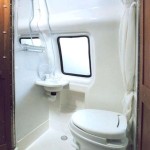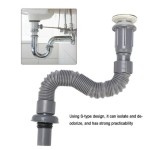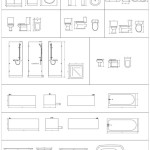Essential Aspects of Building Regulations for New Bathrooms
Building regulations are essential to ensure the safety and functionality of new bathrooms. These regulations cover various aspects, including structural integrity, water supply, drainage, and electrical installations. Understanding these essential aspects is crucial to ensure compliance with building codes and to create a safe and comfortable bathroom. ### Safety Considerations Structural integrity is paramount for the safety of the bathroom. Building regulations specify the minimum standards for framing, supports, and materials to ensure the bathroom can withstand loads and potential stresses. They also address water-resistance measures, such as waterproofing membranes and proper drainage, to prevent moisture damage and mold growth. ### Water Supply and Drainage Building regulations ensure an adequate and safe water supply to the bathroom. This includes proper pipe sizing, valve installations, and pressure testing. Regulations also cover drainage systems, dictating the size, slope, and materials of pipes and fixtures to prevent blockages and leaks. Proper ventilation is also crucial to prevent moisture buildup and indoor air quality issues. ### Electrical Installations Electrical installations in bathrooms require special considerations due to the presence of water. Building regulations mandate the use of moisture-resistant fixtures, switches, and outlets. Proper grounding and bonding are essential to prevent electrical accidents. Regulations also address the placement of light fixtures and heated towel rails to ensure safety and functionality. ### Ventilation and Lighting Ventilation is crucial for reducing moisture and preventing mold growth in bathrooms. Building regulations specify the minimum ventilation rates and provide guidance on the type and placement of exhaust fans. Proper lighting is also essential for visibility and safety, and regulations outline the required lighting levels and types of fixtures. ### Additional Considerations Other essential aspects of building regulations for new bathrooms include: *Accessibility:
Regulations ensure accessibility for individuals with disabilities, specifying requirements for wheelchair access, grab bars, and other assistive devices. *Energy efficiency:
Building codes may include measures to promote energy efficiency, such as low-flush toilets and water-saving fixtures. *Fire safety:
Regulations may address fire safety measures, such as the use of fire-resistant materials and the placement of smoke detectors. By adhering to building regulations, homeowners and builders can ensure the safety, functionality, and longevity of new bathrooms. Understanding these essential aspects is the first step towards creating a bathroom that meets both personal needs and regulatory requirements.
Can A Downstairs Toilet Be Removed From Home Labc

Building Regulations And Bathroom Fittings Homematas

Everything You Need To Know About Downstairs Toilet Building Regulations In The
Minimum Size For A Downstairs Toilet Bathroom Guru

Bathroom Building Regulations In The Knowledge Hub Fast Build Supplies

Designing And Building Your Homes To Be More Accessible Part Two

Learn Rules For Bathroom Design And Code Fix Com

Bathroom Building Regulations Guide Advice Top Tradespeople

Everything You Need To Know About Downstairs Toilet Building Regulations In The

Building Regulation Changes In 2024 Wetroom And Bathrooms
Related Posts







